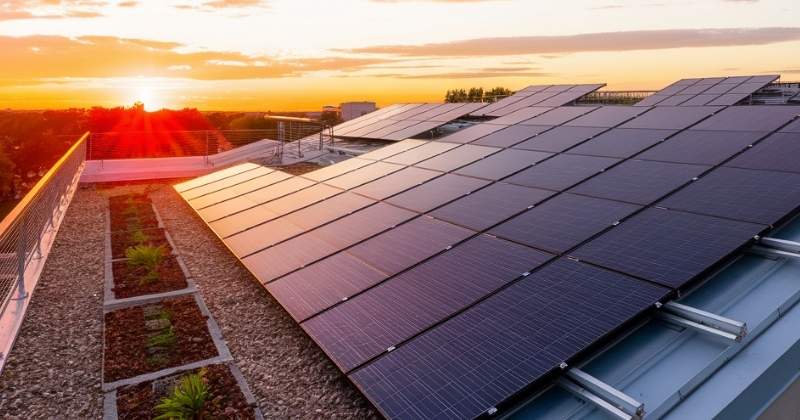
In South Africa, companies across various sectors, including commercial and corporate entities, often contend with inconsistent electricity supply. A viable and long-term solution to this issue is solar energy. This piece outlines the advantages of adopting solar power in South Africa, demonstrating its practicality as an efficient replacement for conventional electricity and offering insights into the potential costs involved.
Key Takeaways
- Solar energy is a cost-effective alternative: Over a 10-year period, solar panels offer significant savings compared to grid electricity, with a levelised cost of energy (LCOE) as low as R0.80 per kWh, far below the average grid electricity rate of R2.55 per kWh
- Rising electricity prices make solar appealing: Grid electricity prices in South Africa have surged by over 300% since 2007, while solar energy provides fixed, predictable costs after installation, shielding users from tariff increases.
- Long-term financial benefits: Solar systems typically pay for themselves within 5–10 years and generate free electricity for an additional 15–20 years, with opportunities to earn income by selling excess energy back to the grid.
About Arcadia Finance
With Arcadia Finance, securing your loan is simple. No application fees and access to 19 NCR-compliant lenders in South Africa. Enjoy a streamlined, reliable service customized to meet your financial goals.
What Are Solar Panels?
Solar panels, often referred to as photovoltaic (PV) panels, are devices designed to convert sunlight into electricity. This process utilises the energy contained in photons, which are particles of light, to generate electrical power that can be used to operate various electrical systems and devices.
These panels have a broad range of applications, making them highly versatile. They are commonly used in systems designed for remote areas, such as powering cabins or telecommunications equipment, and in remote monitoring or sensing setups. Additionally, solar panels are widely implemented in residential and commercial settings to produce electricity as a sustainable and environmentally friendly energy source.
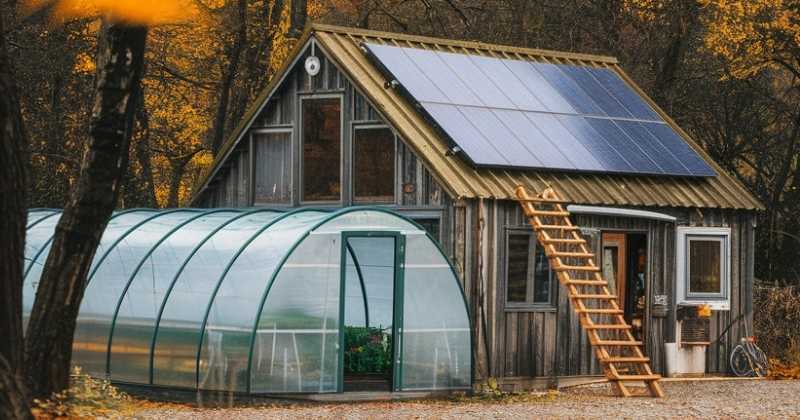
The Advantages of Solar Panels
Solar panels offer an efficient way to generate electricity for various uses. A key application is enabling off-grid living. This allows individuals to reside in areas without access to the main electricity grid. Remote homes and cabins can significantly benefit from solar power systems, removing the need to pay steep costs for installing utility poles and cables to connect to the nearest grid point. A well-maintained solar system is often more cost-effective and can supply power for over 30 years.
In addition to enabling off-grid living, one of the most notable advantages of solar power is its clean and renewable nature. As global climate concerns grow, reducing greenhouse gas emissions has become increasingly important. Solar panels contribute to this by generating energy without producing harmful emissions. With no moving parts and minimal maintenance requirements, solar panels are durable and can last for decades when properly cared for.
Another significant benefit of solar power is its long-term cost-effectiveness. After covering the initial installation costs, the electricity produced for the rest of the system’s lifespan—typically 15 to 20 years, depending on the system’s quality—comes at no additional cost. For those with grid-connected solar systems, the advantages start as soon as the system is operational. These systems can not only eliminate monthly electricity bills but may also generate income. Excess electricity generated by the system can often be sold back to utility companies, sometimes at premium rates.
While solar panels can significantly reduce your electricity bills, there are other savvy ways to upgrade your home on a budget. Learn how to finance home improvements efficiently and make sustainable living affordable.
The Solar Boom in South Africa
South Africa’s ongoing electricity crisis stems largely from failures and interruptions at its outdated coal-fired power plants. Despite the nation relying on coal for 80% of its energy needs, making it the largest greenhouse gas emitter in Africa and 14th globally, progress towards renewable energy has been slow. The country has abundant solar and wind potential, yet for decades, government investment in renewable projects has been limited. A renewable energy initiative launched in 2011 has only contributed 6.2 GW to the national grid over a span of 13 years.
By contrast, rooftop solar installations have seen remarkable growth. In 2023 alone, 2.6 GW of capacity was added, according to Eskom, the state electricity utility. Over the past two years, rooftop solar photovoltaic (PV) capacity has increased more than fivefold. Looking ahead, South Africa is anticipated to become the world’s 10th largest PV market in 2024, coinciding with a further deterioration in loadshedding.
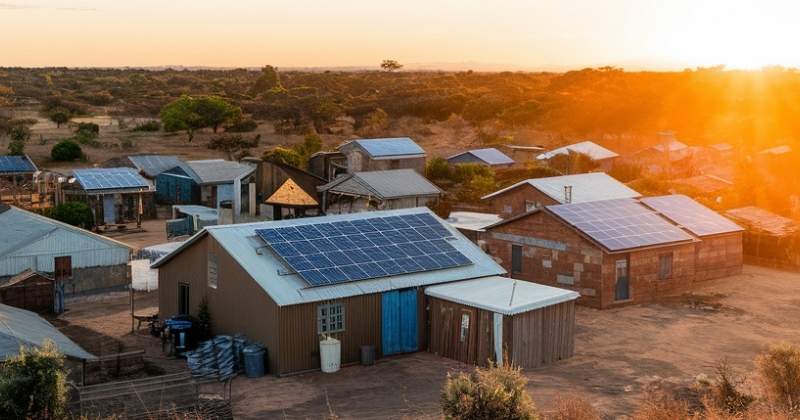
Benefits of Using Solar Energy in South Africa
- Reducing Energy Costs: A key benefit of adopting solar energy is the potential to significantly lower electricity expenses. Businesses can generate their own power, reducing reliance on the grid and freeing up funds to focus on other operational needs.
- Protection Against Increasing Electricity Prices: Solar energy offers a safeguard against the continual rise in electricity tariffs. By producing electricity on-site, businesses minimise their exposure to fluctuating prices and decrease their dependence on traditional power sources.
- Supporting Operations in Remote Areas: For businesses in isolated locations, such as farms or enterprises far from urban centres, solar energy provides a practical power solution. Solar installations eliminate the need for costly grid connections, offering a reliable and independent energy supply.
- Ensuring Reliable Power and Independence: South Africa’s inconsistent electricity supply poses challenges to businesses. Solar energy ensures consistent power availability, even during outages or load shedding. This reduces downtime and enables uninterrupted operations, fostering greater energy independence.
- Promoting Environmental Responsibility: As a renewable energy source, solar power helps businesses reduce their carbon emissions. By harnessing energy from the sun, companies contribute to cleaner air, combat climate change, and play a part in preserving South Africa’s natural resources.
- A Smart Long-Term Investment: Investing in solar energy systems delivers long-term financial returns. With solar panels lasting over 25 years, businesses benefit from stable energy generation and reduced utility costs. Additional programmes, such as feed-in tariffs, can further enhance the financial advantages over time.
- Accessing Government Support and Incentives: The South African government provides various incentives to encourage renewable energy adoption. These include tax benefits, grants, rebates, and net metering, which allows businesses to feed surplus electricity back into the grid. These initiatives improve the financial feasibility of solar installations.
- Creating Employment and Boosting Local Economies: The growth of the solar industry in South Africa supports job creation and strengthens the local economy. Skilled labour, manufacturing, and maintenance roles are generated through solar energy projects, allowing businesses to contribute to community development while meeting their energy needs.
- Improving Brand Image and Customer Appeal: Sustainability has become an important factor for consumers. By switching to solar energy, businesses demonstrate environmental responsibility, enhancing their reputation and attracting customers who value eco-friendly practices. This commitment can increase customer loyalty and provide a competitive edge.
- Preparing for Future Energy Challenges: Solar energy ensures businesses are prepared for future energy needs. With ongoing advancements in technology, solar systems can integrate with battery storage and adapt to changing energy demands. Choosing solar now provides a sustainable and scalable solution for years to come.
With Eskom’s escalating load-shedding schedules, reliable energy alternatives like solar panels are becoming essential.
Solar Panel Pricing in South Africa
Installation Costs
The initial cost of solar panel installation in South Africa varies depending on system size, quality, and additional components such as inverters and batteries. On average:
- Small Residential Systems: Prices range from R70 000 to R150 000, which typically includes panels, an inverter, and installation. These systems are ideal for households with moderate energy needs.
- Larger Residential or Small Commercial Systems: Costs can go up to R300 000, accommodating higher energy consumption or partial grid independence.
- Off-Grid Systems with Batteries: For complete independence, systems with sufficient battery storage may range from R250 000 to R500 000 or more, depending on storage capacity and backup requirements.
It is important to note that government rebates or incentives may help reduce these upfront costs for eligible households or businesses.
Maintenance Costs
Solar panels are relatively low-maintenance compared to traditional energy systems. Key costs to consider include:
- Panel Cleaning: Dust and debris can reduce efficiency, especially in areas with minimal rainfall. Professional cleaning services cost between R500 and R2 000 per session, depending on the number of panels.
- Inverter Replacement: Inverters typically last 10–15 years and may cost R15 000 to R30 000 for replacement, depending on the type and capacity.
- Battery Maintenance: For systems with batteries, maintenance or replacement every 5–10 years may cost R20 000 to R100 000, depending on battery size and technology (e.g., lithium-ion versus lead-acid).
Routine inspections are recommended every few years to ensure the system operates efficiently.
Potential Savings
The initial cost of solar panel installation in South Africa varies Solar panels offer long-term financial benefits that often outweigh the initial investment, particularly in South Africa’s context of rising electricity costs and load shedding.
- Protection from Rising Costs: Solar power offers a hedge against escalating electricity tariffs, ensuring long-term budget stability.
- Electricity Bill Reduction: Households can cut electricity bills by up to 50% or more, while businesses with high daytime energy needs may save even more.
- Income from Excess Energy: Grid-tied systems with net metering enable users to sell surplus electricity back to the grid, creating additional income.
- Payback Period: Most systems pay for themselves within 5 to 10 years, with free energy for the remaining 20–25 years of their lifespan.
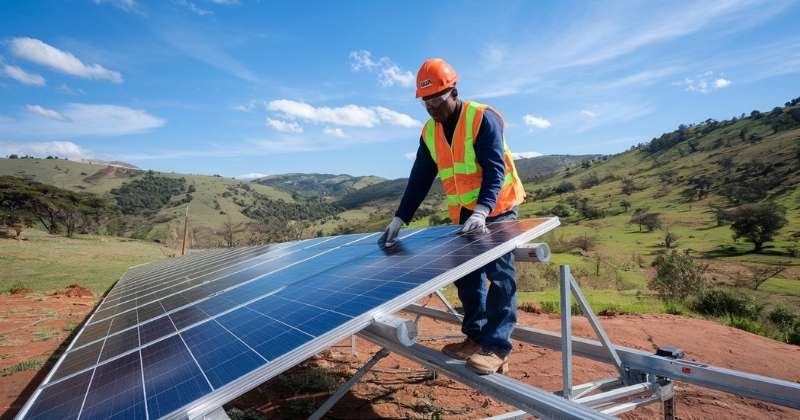
Comparing Solar Energy and Grid Electricity Costs
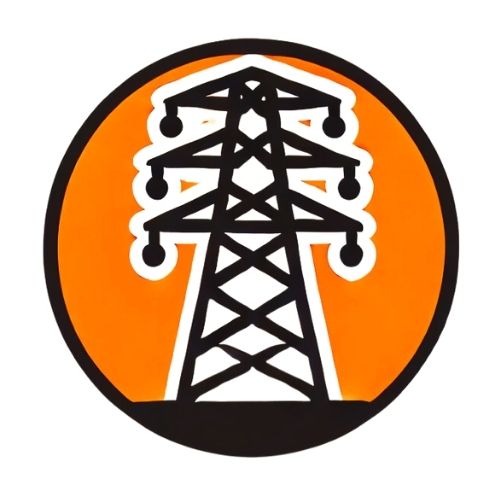
Grid Electricity Costs in South Africa
Electricity prices in South Africa have consistently risen over the past decade. According to Eskom’s tariff schedules, the average price per kilowatt-hour (kWh) has increased by over 300% since 2007, with residential customers paying approximately R2.55 per kWh in 2023. Businesses and industries face even higher rates depending on their consumption patterns and demand charges.
Load shedding further exacerbates these costs by necessitating alternative energy solutions such as generators, which add fuel and maintenance expenses. These ongoing increases in grid electricity costs make solar energy an attractive alternative.

Solar Energy Costs
The cost of generating electricity through solar energy primarily depends on the installation and maintenance of solar systems. A basic breakdown includes:
- Upfront Costs: Residential solar installations range between R70 000 and R150 000, while larger systems for commercial use can cost R250,000 or more, depending on size and storage options.
- Lifetime Costs: Once installed, solar systems produce electricity at a fraction of the cost, with maintenance expenses averaging R2 000–R5 000 per year, depending on cleaning, inspections, and occasional replacements (e.g., inverters or batteries).
- Levelised Cost of Energy (LCOE): The LCOE for solar in South Africa is estimated at R0.80 to R1.20 per kWh over a 20–25 year lifespan, significantly lower than current grid electricity rates.
Cost Comparison Over 10 Years
| Factor | Grid Electricity | Solar Energy |
|---|---|---|
| Initial Investment | None (but rising tariffs) | R70 000–R150 000 (residential) |
| Monthly Costs | R2 000–R4 000 for households | Minimal (system maintenance) |
| Annual Increases | 10–15% (average escalation) | None (fixed after installation) |
| 10-Year Cost | R300 000+ (typical household) | R70 000–R200 000 (including maintenance) |
Conclusion
Solar energy is a practical and financially sound solution for addressing South Africa’s energy challenges. With rising electricity tariffs, frequent load shedding, and increasing global focus on sustainability, solar panels provide households and businesses with an opportunity to reduce costs, achieve energy independence, and contribute to environmental preservation. Though the upfront investment may seem significant, the long-term savings, government incentives, and potential for income generation make solar energy an attractive choice for both residential and commercial users.
Frequently Asked Questions
The cost of a solar panel system varies based on its size and components. Residential systems typically range from R70 000 to R150 000, while larger or off-grid systems may cost R250 000 or more.
Solar panels require minimal maintenance, primarily periodic cleaning to remove dirt and debris. Professional cleaning costs between R500 and R2 000, and inverters or batteries may need replacement every 5–15 years, depending on their type.
Yes, grid-tied solar systems with net metering allow users to sell surplus electricity back to the grid, potentially generating additional income. Availability and rates depend on your local electricity provider’s policies.
Most solar systems in South Africa have a payback period of 5 to 10 years, after which all energy generated is essentially free for the remainder of the system’s lifespan, typically 20–25 years.
Solar panels continue to produce electricity during load shedding if paired with a battery storage system. Without batteries, grid-tied systems will not operate during power outages for safety reasons.
Fast, uncomplicated, and trustworthy loan comparisons
At Arcadia Finance, you can compare loan offers from multiple lenders with no obligation and free of charge. Get a clear overview of your options and choose the best deal for you.
Fill out our form today to easily compare interest rates from 19 banks and find the right loan for you.


